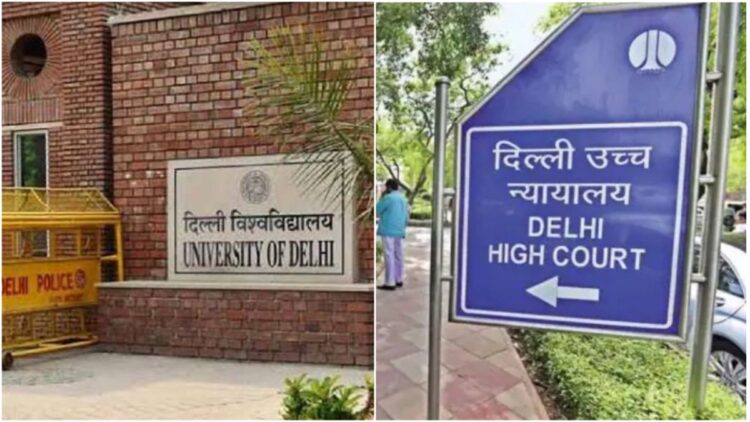Symbolic photo
The University of Delhi (DU) told the Delhi High Court on Thursday that it is ready to show his record court related to Prime Minister Narendra Modi’s degree, but would not reveal it to strangers under RTI. Solicitor General Tushar Mehta argued before Justice Sachin Dutta, after which the court reserved its verdict on the DU’s plea against the order of the Central Information Commission (CIC), directing the information regarding the Prime Minister’s bachelor’s degree. Mehta said, “DU has no objection to the court to show it, but he cannot put the university records in front of strangers to investigate.” He said that the CIC order is eligible to be rejected, as ‘right to know’ is more ‘right to privacy’.
Solicitor General Tushar Mehta said this
Mehta said, “The degree sought is of an alumnus, who is the Prime Minister. We have nothing to hide as a university. We have a year -wise record. The university has no objection to the court showing records. We have a 1978 degree, which is of ‘Bachelor of Arts’. “After a person named Neeraj filed an RTI application, CIC allowed inspection of the records of all the students who passed the BA examination in 1978 on December 21, 2016. In the same year, Prime Minister Modi also passed this exam. In the RTI application, details of all the students appearing for the exam in 1978 were sought. The High Court on January 23, 2017 stayed the CIC order. The court also reserved its decision on other similar petitions. Lawyers of RTI applicants defended the order of the CIC on the basis that the Right to Information (RTI) Act provides for the Prime Minister’s educational information to be revealed in the widespread public interest.
Misuse of RTI Act
Mehta said on Thursday that the ‘right to know’ is not unlimited and has been protected from disclosure of a person’s personal information, which is not related to public interest or public duty. He warned against misusing the RTI Act by ‘activists’ and said that allowing the disclosure in the current case will reveal RTI applications regarding millions of students of the university. Mehta said, “This is not the purpose for which RTI has been envisaged.” The Act has not been enacted for Article 19 (1). This is for transparency under Section 8 (exceptions). ”He alleged that the demand in the current case has been made with political purpose. He said that only because the information is more than 20 years old, the criterion of ‘broad public interest’ does not end.
Tushar Mehta said- This law is not to embarrass others
Mehta said that this law is not for those ‘independent people’ who are engaged in “embarrassing” to “satisfy their curiosity” or “embarrassed” to others. In connection with the request to make Prime Minister Modi’s degree public, the Delhi University (DU) argued in the Delhi High Court on February 11 that it is the information of the information and in the absence of public interest, no one has the right to ask for personal information under the RTI Act on the basis of “curiosity”. The lawyer representing one of the RTI applicants on February 19 argued that providing a degree to a student is not a private task, but a public work under the purview of Right to Information. Challenging the CIC’s order, DU said that the RTI Authority’s order is “arbitrary” and “unable in the eyes of the law is” as the information demanding to disclose is “personal information of third party”.
(input language)
Latest india news









